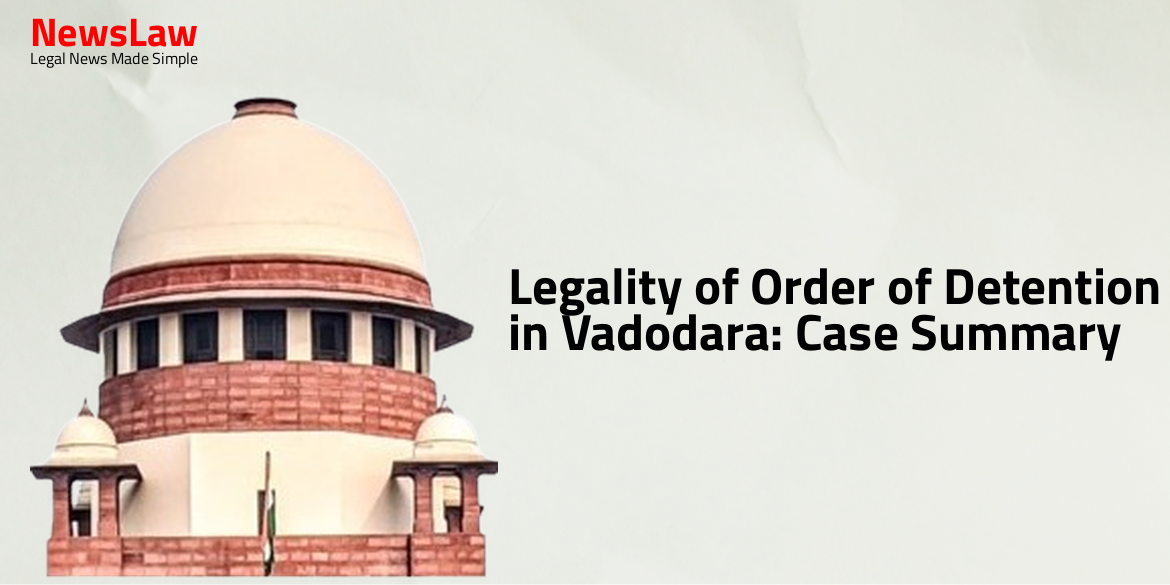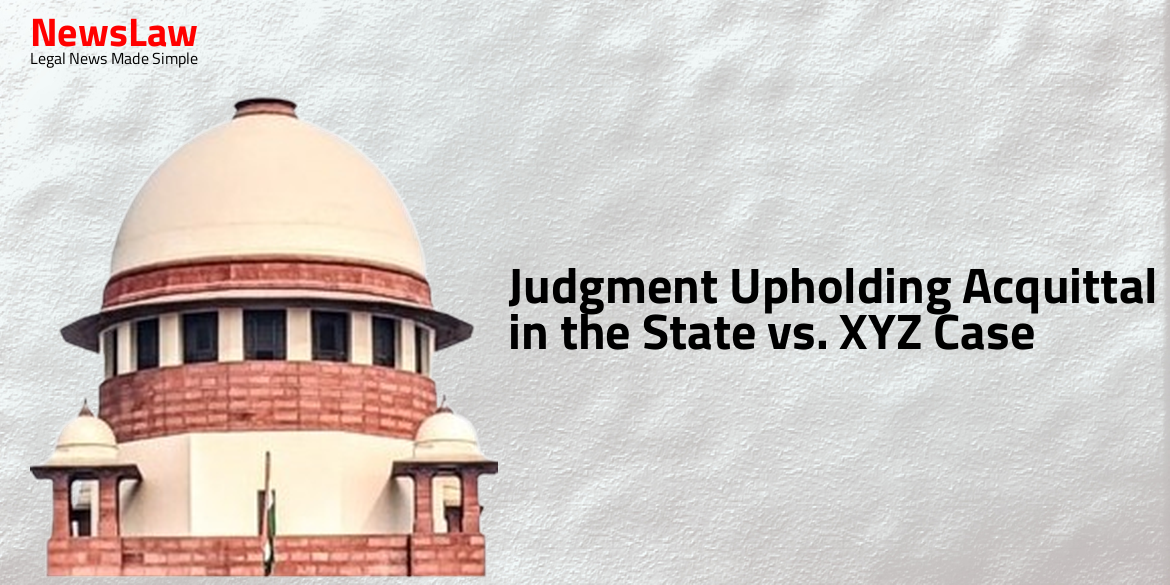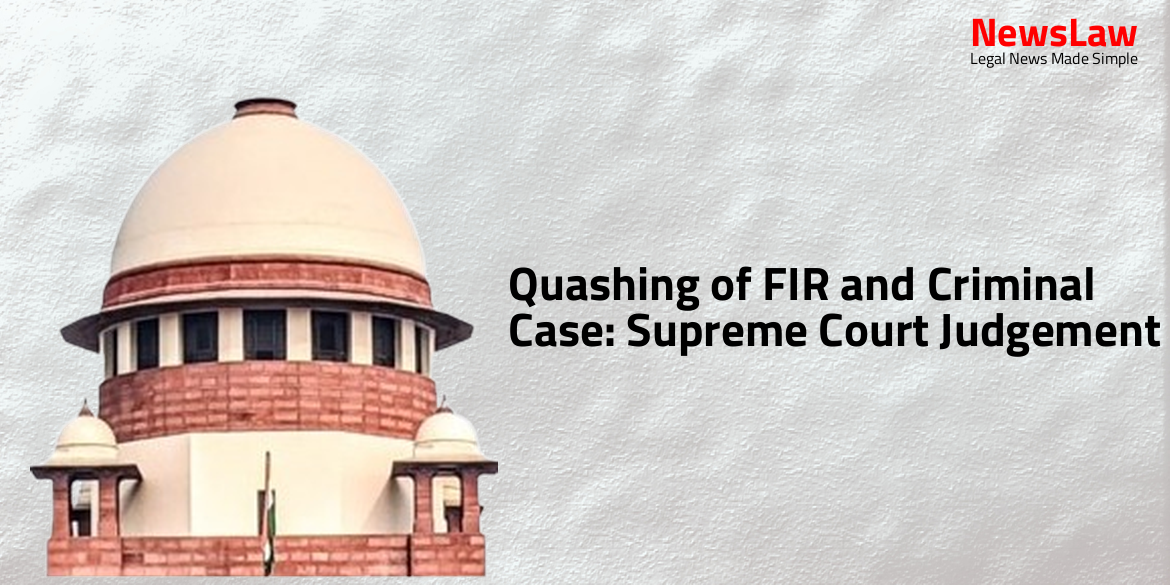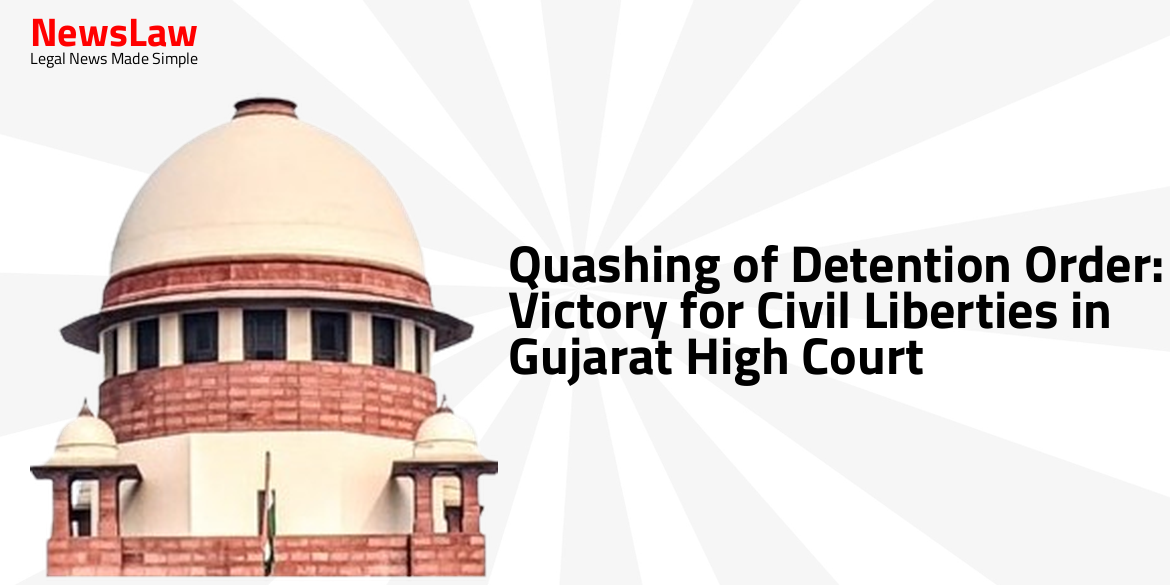In a recent judgment by the Gujarat High Court, the legality of the detention order in Vadodara was challenged. The case revolved around the detention order issued by the Detaining Authority under the Act of 1985. The court examined whether the detention of the individual was necessary to prevent actions prejudicial to public order in Vadodara. Stay tuned to learn more about the decision and its impact.
Facts
- The FAC in the judgement has been challenged for its legality and validity by the petitioner.
- The petitioner contests the order issued in the FAC.
- The legality and validity of the order are being questioned in this petition.
Issue
- The issue raised is whether the order of detention passed by the Detaining Authority under the Act of 1985 is legally valid.
- The key question is whether the detention of the individual was necessary to prevent him from acting in a manner prejudicial to public order in Vadodara.
- The facts and submissions by both parties have been considered in determining the legality of the detention order.
- The core issue is whether there is a substantial question of law regarding the interpretation of the Constitution of India or any order made thereunder in this case.
Arguments
- The learned advocate for the detenue argues that the grounds of detention are related to law and order, not public order.
- The registration of the offense is claimed to have no adverse effect on public order as per the Act.
- The alleged offenses do not impact the maintenance of public order but only relate to law and order.
- The detenue’s activities are seen as prejudicial only to the maintenance of law and order.
- On the contrary, the State Counsel argues that the detenue is a habitual offender whose activities affect society at large.
Analysis
- The detaining authority failed to prove that the petitioner’s alleged anti-social activities impact public order.
- Incidents of beating by the petitioner were acknowledged but were deemed unrelated to public order maintenance.
- Being a bootlegger does not warrant preventive detention unless it affects public order as per the Act.
- The two criminal cases mentioned did not justify the petitioner’s detention as they were bailable offenses and not linked to public order.
- Distinction between ‘law and order’ and ‘public order’ explained
- Mere disturbance of law and order is not sufficient for action under Preventive Detention Act
- Serious and aggravated forms of disorder affecting the community or public interest constitute public order
- Minor breaches of peace with local significance primarily affecting specific individuals do not amount to public disorder
- Contravention of law affects order, but to affect public order, it must impact the community or public at large
- The material on record is not sufficient to show that the detenue’s alleged activities have adversely affected public order.
- The detaining authority’s subjective satisfaction is not considered legal or valid.
- The alleged offences and allegations do not create a sense of insecurity, panic, or terror among the public in the area.
- The order of detention is not upheld as it does not relate to the maintenance of public order.
Decision
- The petition stands allowed
- Rule made absolute
- Direct service permitted
- The detenue to be set at liberty forthwith, if not required in any other case
- The order dated 31.12.2023 passed by the respondent authority is quashed
Case Title: JAYESHBHAI NATVARBHAI PATEL THROUGH MINAXIBEN NATVARBHAI PATEL Vs. STATE OF GUJARAT
Case Number: R/SCA/1273/2024



